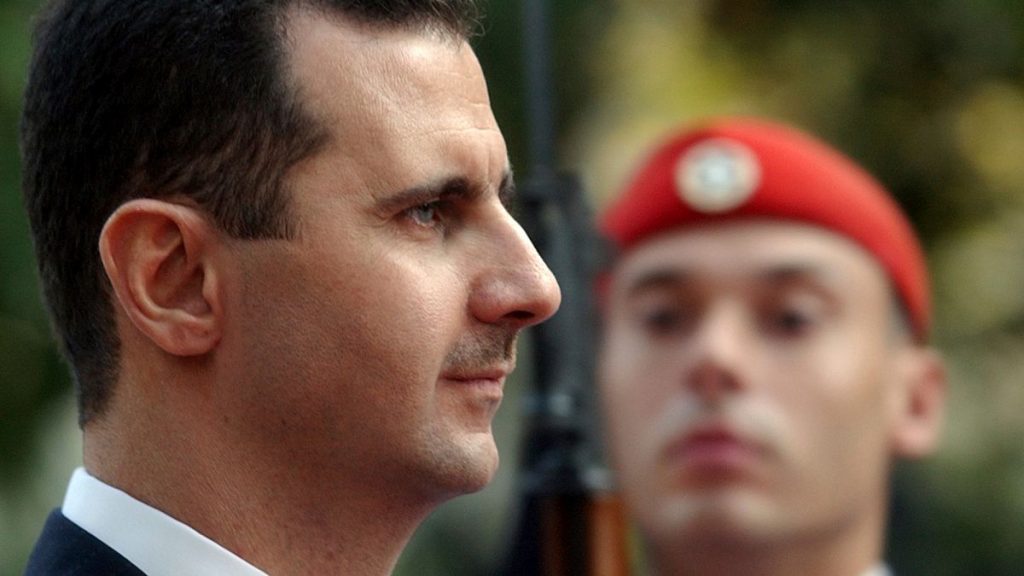The Downfall of a Dynasty: Bashar al-Assad and the Collapse of Syria
The sudden collapse of the Syrian government in early 2024, after a swift rebel offensive, brought an end to the Assad family’s five-decade reign. Bashar al-Assad’s nearly 14-year struggle to maintain power concluded dramatically, leaving Syria ravaged by a brutal civil war that transformed into a proxy conflict involving regional and international actors. Assad’s fall from grace starkly contrasted with the initial optimism surrounding his presidency in 2000. The young, Western-educated ophthalmologist, initially perceived as a potential reformer after his father’s authoritarian rule, ultimately resorted to the same oppressive tactics to quell dissent when protests erupted in 2011.
The seeds of the Syrian conflict were sown in the early days of Bashar al-Assad’s presidency. While initial reforms hinted at a potential shift from his father’s iron-fisted rule, these hopes were dashed as Assad cracked down on dissent and consolidated power. His reliance on the same Alawite-centric power structure as his father, Hafez al-Assad, further alienated segments of the population, particularly the Sunni majority. The "Damascus Spring," a brief period of intellectual and political openness, was swiftly suppressed, foreshadowing the regime’s intolerance for any challenge to its authority. The economic liberalization, while bringing a degree of prosperity, primarily benefited a select few and failed to address underlying social and political inequities.
The Syrian civil war, ignited by the 2011 uprising, became a complex and devastating conflict. Assad’s brutal response to the protests, backed by allies Russia and Iran, led to widespread violence and displacement. The conflict claimed nearly half a million lives and forced half the country’s pre-war population to flee their homes, seeking refuge in neighboring countries and beyond. The war also became a breeding ground for extremist groups, further complicating the situation and adding to the human suffering. Accusations of widespread torture and extrajudicial killings in government-run detention centers further underscored the regime’s brutality.
Despite the devastating toll of the war, Bashar al-Assad appeared to be regaining control by late 2023. With the support of Russia and Iran, his forces had reclaimed a significant portion of Syrian territory, leaving opposition groups confined to the northwest and Kurdish forces controlling the northeast. Neighboring countries, seemingly resigned to Assad’s continued rule, began to normalize relations with Syria. The Arab League reinstated Syria’s membership, and Saudi Arabia, after years of severed ties, appointed an ambassador to Damascus. These developments suggested that Assad, despite being under Western sanctions, had weathered the storm and was on the path to solidifying his grip on power.
However, the fragile stability was shattered by a surprise offensive launched by opposition groups in late November 2023. Government forces crumbled rapidly, and Assad’s allies, preoccupied with other conflicts – Russia with the war in Ukraine, and Iran with ongoing tensions involving Israel, Hezbollah, and Hamas – appeared reluctant to intervene decisively. The swiftness of the rebel advance, coupled with the apparent lack of support for Assad from his key allies, led to the rapid collapse of the Syrian government and the end of the Assad dynasty’s rule.
The unexpected turn of events left Syria’s future uncertain. The whereabouts of Bashar al-Assad remained unknown, with reports suggesting he had fled the country. With no clear successor and a country deeply scarred by years of conflict, Syria faced a challenging and unpredictable future. The fall of the Assad regime, while marking a significant turning point in the Syrian conflict, also presents a new set of challenges. The power vacuum created by the regime’s collapse, the ongoing presence of various armed groups, and the devastating humanitarian crisis necessitate a concerted international effort to stabilize the country and address the urgent needs of the Syrian people.














